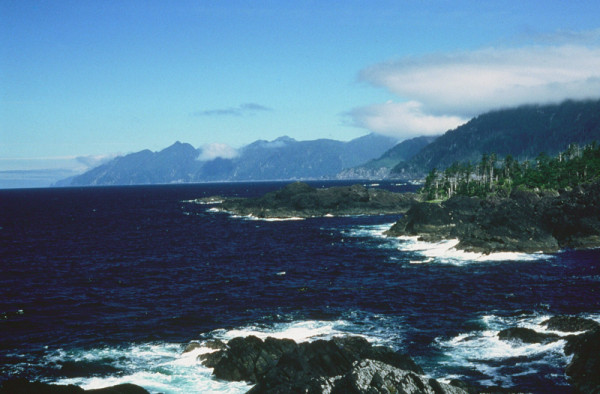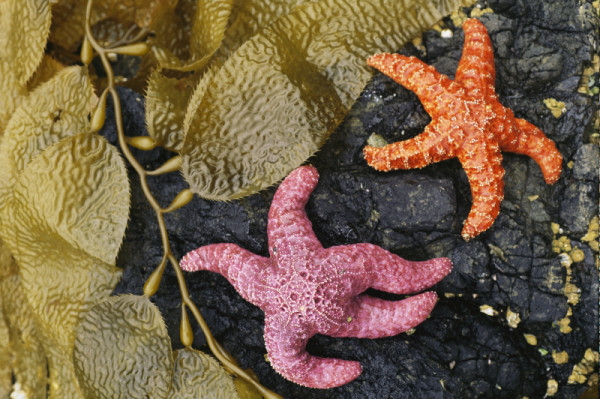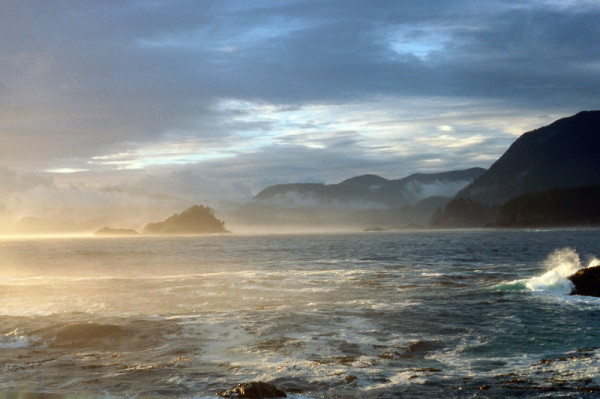Canada’s Tourism Industry Needs Marine Management and Protection
Originally posted in The Hill Times
Co-Written by Andrew Dumbrille, Manager – National Oceans Governance & Arctic at WWF-Canada and Randy Burke, Managing Director of Bluewater Adventures Ltd.
Canada is a place where people come from all over the world to enjoy our natural heritage. We have the good fortune to have some of the world’s most awe-inspiring natural land and seascapes, and untouched wildernesses.

But fortune alone is not enough – to keep our environment healthy, we need to plan. We need to preserve the places that serve as habitat for wildlife and keep those ecosystems intact and thriving. We’ve done a good job of this on land, but we are lagging when it comes to protecting our oceans.
There is a misperception that environmental conservation can only come at the expense of the economy. Ocean industries contribute $39 billion to Canada’s economy each year, supporting 329,000 jobs, and creating opportunity in more than 1,500 Canadian coastal communities, as well as across the country. Obviously, we need to ensure that these industries can continue to support jobs and communities. But marine planning and protection is not a threat to these industries – the lack of it is.
The fact is, Marine Protected Areas and Conservation Areas can and do contribute substantially to local and national economies.
Take for example the Gwaii Haanas National Marine Conservation Area off the coast of British Columbia, which was created by Prime Minister Harper in 2010. This 3,500 square kilometer protected area surrounds Gwaii Haanas National Park Reserve and Haida Heritage site, recognizing that the land and ocean in this complex ecosystem are inter-dependent. The waters of the Queen Charlotte shelf drop 2500 metres, creating a unique underwater environment that is home to thousands of marine species, from tiny invertebrates that form the basis of the food chain, to the massive whales they support.

© National Geographic Stock / Michael Melford / WWF-Canada
Tourists from every corner of the world come to B.C. to see this spectacular ecosystem, which is home to hundreds of species of fish and seabirds, sea lions, dolphins, porpoises and whales, including humpback, orca, fin and minke whales. In 2005, marine recreation and tourism contributed an estimated $1.82 billion to BC’s GDP and employed more than 32,000 people, constituting almost 30% of BC’s tourism-related GDP, and 27% of tourism-related employment. And in 2010 there were 514,329 anglers in BC, catching ~4 million fish and spending about $1.1 billion.
But Marine Protected Areas contribute to the economy in more ways than just attracting visitors – they serve as ‘fish banks,’ creating safe places for the species that support the web of marine life and rebuild populations that have been depleted. In B.C., the obvious example of this is Pacific salmon – without abundant salmon populations, the orcas, sea lions and bears that tourists come to see would be threatened.
Gwaii Haanas represents a major step in the right direction, but to ensure that Canada’s oceans habitats are protected in a meaningful way, we need an integrated marine plan for BC that enables sustainable development in the ocean and protects ecological values on which many industries depend. The current Marine Planning Partnership (MaPP) between First Nations and the Province is poised to do just that, manage development in a way that benefits the economy without losing sight of maintaining the health of the marine ecosystem.

The stability and long term growth of BC’s marine tourism economy directly depends on protecting marine environments and ensuring they stay healthy into the future. Jobs and coastal economies stand to benefit when we choose to conserve some of the most iconic and unique marine habitats in BC and the world.
Randy Burke is the Managing Director of Bluewater Adventures Ltd, the leading wildlife and wilderness cruise company in British Columbia – celebrating 40 years in business in 2014. The company operates three different yachts taking guests from around the world on week-long “wildlife safaris”. Andrew Dumbrille manages WWF-Canada’s National Oceans Governance program in Ottawa.
